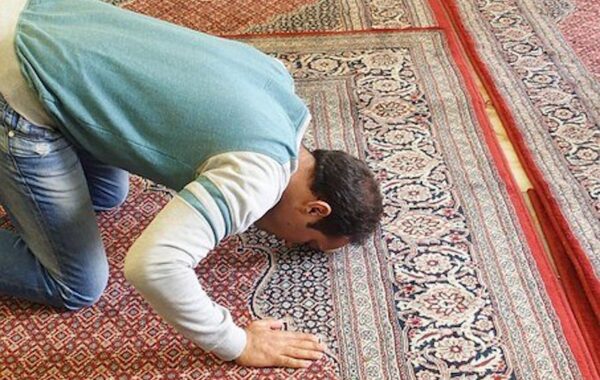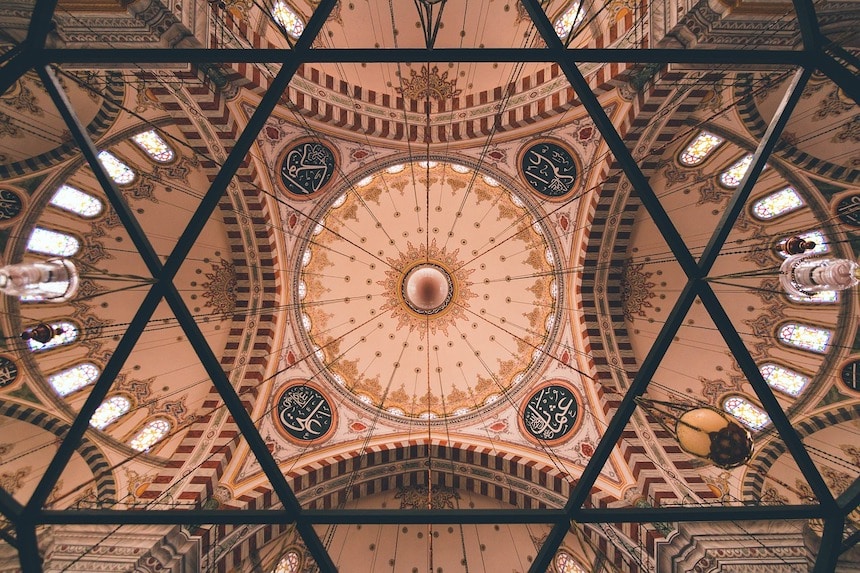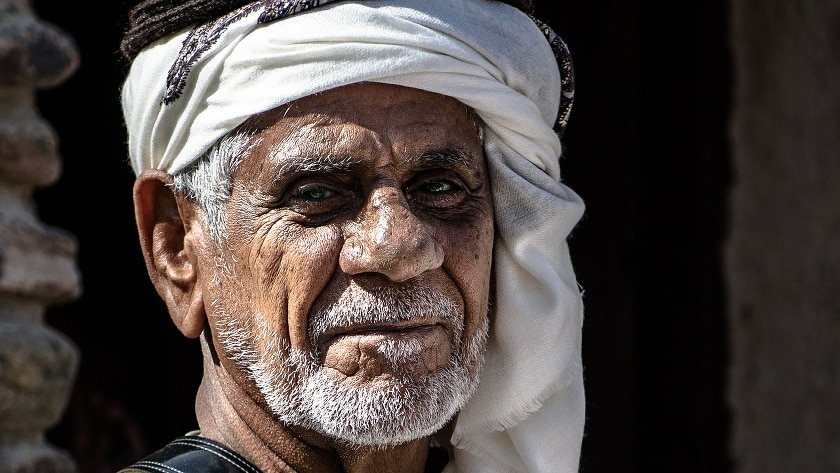Last updated on May 19, 2021 by Roger Kaufman
What we absolutely need to know about the Islamic world
Islamic World Lecture by Vera F. Birkenbihl (April 26, 1946;
† December 3, 2011) 2008 in Karsfeld
The image that Europe has of the Islamic world is often characterized by ignorance and fear. Vera F. Birkenbihl gives an exciting insight into the Islamic world - some key points from the content:
- What is a FATWA?
- What does JIHAAD really mean?
- Do Muslim women have to wear a veil?
- Do progress and Islam contradict each other?
- What is the difference between Sunni and Shiite?
- Is there an Islamic emancipation of women?
Vera F. Birkenbihl (April 26, 1946; † December 3, 2011)
In the mid-1980s, Vera F. Birkenbihl gained greater fame through a self-developed method of language learning, the Birkenbihl method. This promised that there would be no need to “cram” vocabulary. The method represents a concrete case study of brain-friendly learning. In her words, this term is a translation of the term “brain friendly” imported from the USA.
In seminars and publications, she dealt with the topics of brain-friendly learning and teaching, analytical and creative thinking, personality development, numerology, pragmatic esotericism, brain-specific gender differences and future suitability. When it came to esoteric topics, she referred to Thorwald Dethlefsen.
Vera F. Birkenbihl founded a publishing house and the Institute for Brain-Friendly Working in 1973. In addition to her 2004-episode show Kopfspiele produced in 22,[9] she was an expert in the series Alpha - Perspectives for the Third Millennium on BR-alpha in 1999 to see.
By 2000, Vera F. Birkenbihl had sold two million books.
One of her main focuses until recently was the topic of playful knowledge transfer and the corresponding learning strategies (non-learning learning strategies), which were intended to make practical work easier for both learners and teachers. Among other things, she developed the ABC list method.
Awards Vera F. Birkenbihl
- 2008 Hall of Fame – German Speakers Association
- 2010 Coaching Award – Special achievements and merits
Source: Wikipedia Vera F. Birkenbihl

Islam is according to that Christianity the second largest religious Faith the world, with 1,8 billion Muslims worldwide. Although its roots go back further, scholars generally date the creation of Islam to the 7th century, making it the youngest of the world's major faith communities.
Islam began in Mecca, in what is now Saudi Arabia, during the life of the Prophet Muhammad. today The belief spreads quickly around the world.
Islam Facts – Islamic World
The word “Islam” suggests “submission to the will of God.”
fans of the Islam are called Muslims.
Muslims are monotheistic and praise an all-knowing God, referred to in Arabic as Allah.
Followers of Islam want one live lead in complete submission to Allah.
They think that absolutely nothing can take place without Allah's permission, but people have free choice.
Islam shows that Allahs Word to the Prophet Muhammad using the Angel Gabriel was revealed.
Muslims believe that several prophets were sent to teach Allah's regulation. They value some of the same prophets as Jews and Christians, including Abraham, Moses, Noah and Jesus. Muslims claim that Muhammad was the last prophet.
Mosques are places where Muslims pray - Islamic world

Some important holy sites of Islam are the Kaaba Temple in the capital, the Al-Aqsa Mosque in Jerusalem and the Mosque of the Prophet Muhammad in Medina.
The Koran (or Koran) is the important holy message of Islam. The Hadith is another essential book. Muslims also admire material found in the Judeo-Christian Holy Bible.
Fans pray to Allah by hoping and also expressing the Quran. They believe there is a day of judgment as well life after death will give.
A central proposal in Islam is “jihad,” which implies “struggle.” While the term has been used negatively in mainstream society, Muslims think that it represents internal and external efforts to protect themselves trust is described.
Although unusual, this may include armed forces jihad when "easy fighting" is required.
Muhammad – Islamic world
The Prophet Muhammad, sometimes referred to as Mohammed or Mohammad, was born in the capital of Saudi Arabia in 570 AD. Muslims believe he is the last prophet sent by God to make their faith accessible to humanity.
According to Islamic messages and traditions, in 610 AD, an angel named Gabriel checked on Muhammad while he was meditating in a cave. The angel bought Muhammad to speak the words of Allah.
Muslims believe that Muhammad remained for the rest of his life to receive revelations from Allah.
From 613 onwards, Muhammad preached the messages he had received throughout Mecca. He taught that there was nothing other than Allah and that Muslims were theirs live have to dedicate to this God.
hijrah
In 622, Muhammad traveled from Mecca to Medina with his lawyers. This journey was called Hijra (also spelled Hegira or Hijrah) and also marks the beginning of the Islamic calendar. Some 7 years later, Muhammad and his numerous fans returned to Mecca and conquered the region. He continued to teach until his death in 632.
Abu Bakr
According to Mohammed Tod Islam spread quickly. A collection of leaders called caliphs became followers of Muhammad. This leadership system, led by a Muslim leader, eventually came to be known as the Caliphate.
The original caliph was Abu Bakr, Muhammad's father-in-law and also a friend.
Abu Bakr died about two years after his election and was succeeded in 634 by Caliph Umar, another father-in-law of Muhammad.
Caliphate system
When Umar was executed six years after his appointment as caliph, Uthman, Muhammad's son-in-law, took over the role.
Uthman was also eliminated and Ali, Muhammad's relative and son-in-law, was chosen as the next caliph.
During the reigns of the first four caliphs, Arab Muslims conquered vast regions in the Middle East, consisting of Syria, Palestine, Iran and also Iraq. Islam also spread to areas in Europe, Africa and Asia.
The caliphate system lasted for centuries and eventually evolved into the foothold empire, which regulated large regions in the Middle East from 1517 to 1917, when World War I ended foothold power.

Sunnis and also Shiites - Islamic world
When Muhammad died, there was a debate about who should replace him as leader. This led to a split in Islam and two major sects emerged: the Sunnis and also the Shiites.
Sunnis make up almost 90 percent of Muslims worldwide. They agree that the first four caliphs were true successors of Muhammad.
Shia Muslims believe that only Caliph Ali and his descendants are the true followers of Muhammad. They refute the authenticity of the first three caliphs. Today, Shiite Muslims exist in Iran, Iraq and also Syria.
Other Types of Islam – Islamic World
There are other smaller Muslim denominations within the Sunni and also Shia teams.
Some of them are:
The Tameem tribe of Saudi Arabia was founded in the 18th century. Followers observe a very strict interpretation of Islam taught by Muhammad bin Abd al-Wahhab.
Alawite: This Shiite Islam prevails in Syria. Fans have similar ideas about Caliph Ali, but also observe some Christian and Zoroastrian holidays.
Land of Islam: This primarily African-American Sunni sect was founded in Detroit, Michigan in the 1930s.
Kharijites: This sect was damaged by the Shiites after they disagreed over how to choose a new leader. They are known for radical fundamentalism and are now called Ibadis.
The Koran (in some cases referred to as the Qur'an or Qur'an) is considered one of the most important holy books among Muslims.
It contains some standard information found in the Hebrew Bible in addition to the revelations given to Muhammad. The text is thought about the holy word of God and also replaces all previous works.
Many Muslims believe that Muhammad's scribes wrote down his words, which eventually became the Quran. (Muhammad himself was never instructed to read or write.)
The guide consists of Allah as the first person speaking to Muhammad through Gabriel. It includes 114 phases called Surahs.
Scholars believe that the Quran was written after Muhammad Tod was quickly put together with the support of Caliph Abu Bakr.








